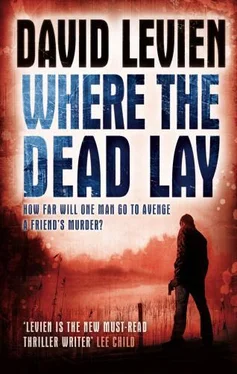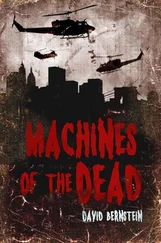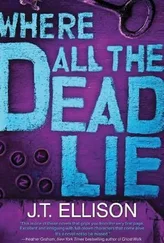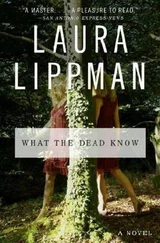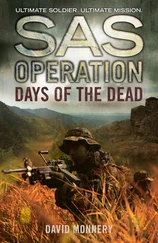David Levien - Where the dead lay
Здесь есть возможность читать онлайн «David Levien - Where the dead lay» весь текст электронной книги совершенно бесплатно (целиком полную версию без сокращений). В некоторых случаях можно слушать аудио, скачать через торрент в формате fb2 и присутствует краткое содержание. Жанр: Криминальный детектив, на английском языке. Описание произведения, (предисловие) а так же отзывы посетителей доступны на портале библиотеки ЛибКат.
- Название:Where the dead lay
- Автор:
- Жанр:
- Год:неизвестен
- ISBN:нет данных
- Рейтинг книги:4 / 5. Голосов: 1
-
Избранное:Добавить в избранное
- Отзывы:
-
Ваша оценка:
- 80
- 1
- 2
- 3
- 4
- 5
Where the dead lay: краткое содержание, описание и аннотация
Предлагаем к чтению аннотацию, описание, краткое содержание или предисловие (зависит от того, что написал сам автор книги «Where the dead lay»). Если вы не нашли необходимую информацию о книге — напишите в комментариях, мы постараемся отыскать её.
Where the dead lay — читать онлайн бесплатно полную книгу (весь текст) целиком
Ниже представлен текст книги, разбитый по страницам. Система сохранения места последней прочитанной страницы, позволяет с удобством читать онлайн бесплатно книгу «Where the dead lay», без необходимости каждый раз заново искать на чём Вы остановились. Поставьте закладку, и сможете в любой момент перейти на страницу, на которой закончили чтение.
Интервал:
Закладка:
“Better fucking be,” Terry said and headed on toward the front door. The old man could still move like a wraith when he needed to. It was disturbing. Then Charlie saw Kenny appear at the back door and give him the nod. Charlie looked around to make sure that his father had left and that the room was clear, and then he went on out the back door.
Peanut Marbry and Nixie Buncher were waiting for them behind the building. The night glowed gold from the sodium vapor streetlamps that hissed in the near distance. That silly-ass car Peanut was so proud of idled ten feet away, shaking slightly from the bass thumping inside it.
Handshakes and halfhearted chest bumps were exchanged before any words were spoken.
“A’ight, a’ight,” Peanut said, “now it’s time to do some real commercializing. You gots the vegetation?”
“Just under five pounds. Call it four and a half libs, pure hydro. Two hundred oxys. A few eight-balls, too,” Charlie said, a little smile creeping up. “A whole party kit. Here.” Charlie extended a thick, tightly rolled spliff, which Peanut took.
“How much for it?” Peanut asked. He sniffed the joint and lit it.
“Five thousand,” Charlie said. “You got the cash ready?”
A silent moment passed, along with a look between Peanut and his partner. “Will have it, in a couple-few days,” Peanut said, blowing out the smoke. “But how ’bout this: start me off with a pound on consignment, then in two days, I re-up for the rest and give you all the cash.”
“Fuck that,” Kenny said.
Nixie sucked at his cheek audibly.
“Nah,” Charlie said, then repeated “nah.”
“A’ight then, it’s gonna be a couple-few days.”
The group of them seemed disappointed at the forced wait, then Charlie remembered their other business. “It’s time for us to be moving into the ’hood.”
At this Nixie sucked his cheek again, then spit.
Kenny looked to him. “All politics is local, bro. You got a problem with that?”
Nixie was about to say something when Peanut said, “Chill. ’S’all chill.” His eyes lit and he turned to Charlie. “I’s thinking, how’s about you front me the shit and then don’t pay me for the next house I take you to?”
Charlie and Kenny looked at each other. It made perfect sense. Better than perfect sense. Transition their old business into their new and more profitable business. He could pay for the information with the weed and keep the money his father gave him to pay for the information. But the thought of those black eyes and that coarse wedge of arm scraping around his neck came to him. His father would bury him for even having this conversation.
“Nah, man,” Charlie said, “we can’t commingle that shit. Like I said: next house you take us to is in the ’hood. You get paid for it. When you get the rest of the money together we’ll meet and do the other thing.”
After a moment Peanut nodded, took another hit off the joint, and he and Nixie headed for the car. Charlie turned to his brother. Kenny was smart enough to be anything he wanted to be; that’s why Charlie had cut him in on his side action. But the kid was a stone wiseass, way worse than Charlie had ever been. “‘All politics is local.’” Charlie shook his head. “You gotta stop reading the paper.”
Kenny just laughed and they went inside.
Getting into his car, Peanut stopped. “That’s some broke-ass chronic,” Peanut said, and flicked the joint away into the night.
TWENTY-EIGHT
"HOMELESS ASSAULTED IN SQUAT HOUSE,” announced the Star’s headline. The piece was written by Neil Ratay and told of an attack by several unidentified males on a house in the Meadows, near where the Mozel Sanders projects used to be, where a group of “the homeless” had assembled and were “thought to be residing.” Two of them needed to be taken to the hospital with blunt trauma injuries. The rest had scattered. No deaths. The victims were unidentified at “police request due to ongoing investigation.” Details were thin. There was no electricity in the house, and a few battery-powered lamps had been upset at the start of the violence, so the victims couldn’t even pinpoint the race of their attackers or how many had been involved. Behr read it and reread it and couldn’t decide if it even smacked of another pea-shake hit, with the reporting tamped down and manipulated by the police. He was tempted to reach out to Ratay and ask for the real deal, but he was concerned his questions would only serve to place a bigger story about the missing Caro detectives than the one he was confirming, so he didn’t. He figured he’d just check it out on his own.
There was no reason not to; things had gone quiet the past four days, and August had arrived, crawling slowly in on a trail of thick heat. Behr’s anger boiled, low and bilious, at the base of his throat. Frustration clutched at him. He was feeling abandoned by his sources, unoriginal in his thinking, without skill or drive. He had no live angles to work and had resorted to pursuing background on both his cases in a futile attempt to stay busy. His experience told him that if he kept at it he would discover a mistake or a connection that would lead him to answers. No one could commit ongoing crimes without leaving some residue. So he ran interviews, by phone, e-mail, and in person, with Aurelio’s students. He’d been out to Eli Lilly to see some executives and a guy from one of the warehouses, all who trained at the academy. He’d been to a fitness club where some other students worked as personal trainers. He’d been to a car dealership, a supermarket, and a bank. People from all walks of life trained jiu-jitsu now. Nothing of particular interest turned up. He had even gone and sat outside Ben Davis High School, where he waited for summer football practice to end, to talk to Max Sanchez and Juan Aybar, two juniors he knew vaguely from around the studio, kids who cleaned the mats and did errands for Aurelio in exchange for taking classes there.
He saw Sanchez first, looking bigger and stronger than when last he’d seen him, and called out, “Hey, Max.” Sanchez stopped putting his key into the door of an old Volkswagen Passat and turned.
“You doing summer school, man?” Sanchez asked.
“Yeah, exactly, studying up,” Behr said. “Wanted to talk to you and Juan about what went down. Didn’t see you at the memorial.”
“We had two-a-days. Coach said we could miss for family only. He’s a hard-ass mother-”
“They all are,” Behr said.
“I’m grabbing Aybes at the side door. We just lifted. Come on,” Sanchez said, and got in the car. Behr crammed himself into the passenger seat and they drove around to where a few ballplayers straggled out of the weight room. Juan was sitting outside, his back against the building, drinking a Gatorade. He got up and came toward the car carrying both of their gym bags as Behr unfolded himself from his seat.
“Hey, Behr,” Aybar said. He looked like he’d grown four inches in the past month, but his weight hadn’t kept pace.
“Hey,” Behr said, “wanted to know if you guys had seen or heard anything that might have a connection with what happened.” Both kids shrugged and shook their heads.
“When was the last time you saw him?”
“Besides class and cleaning up?” Max asked. Behr nodded.
“Nothing really. Picked up a bunch of cases of water with him at Wal-Mart,” Aybar said. “Oh, and the NAGA tournament.”
“In Chicago. We rode up there with him, a few weeks back,” Max added.
“How’d you do?” Behr wondered.
“Submitted my first guy, then got triangled,” Sanchez said, and Behr looked to Aybar.
“I submitted my first guy, then lost on points,” he said. “But that judge was totally tripping. He missed, like, two of my takedowns and a reversal. I totally had that shit.”
Читать дальшеИнтервал:
Закладка:
Похожие книги на «Where the dead lay»
Представляем Вашему вниманию похожие книги на «Where the dead lay» списком для выбора. Мы отобрали схожую по названию и смыслу литературу в надежде предоставить читателям больше вариантов отыскать новые, интересные, ещё непрочитанные произведения.
Обсуждение, отзывы о книге «Where the dead lay» и просто собственные мнения читателей. Оставьте ваши комментарии, напишите, что Вы думаете о произведении, его смысле или главных героях. Укажите что конкретно понравилось, а что нет, и почему Вы так считаете.
